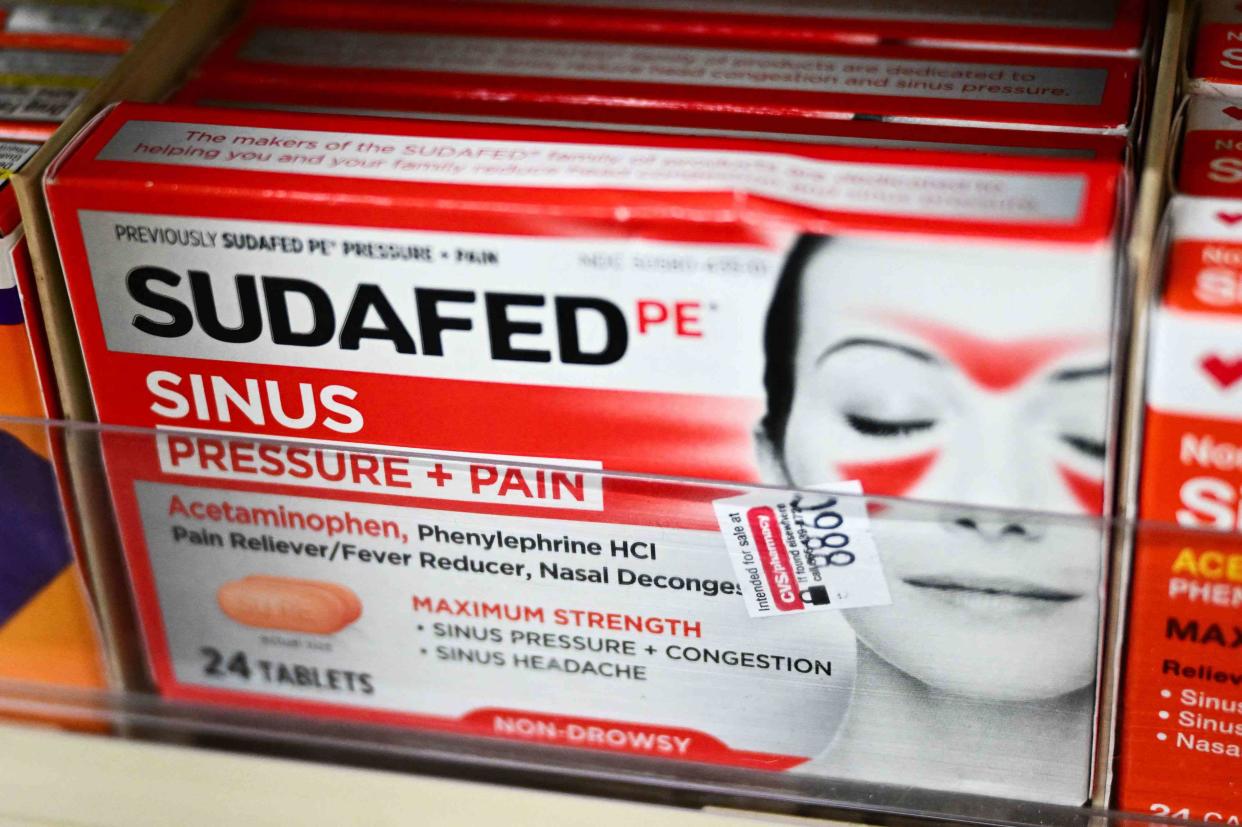The Decongestant in Sudafed PE and Dayquil Doesn't Work—Here's What to Take Instead

Eric T. Fallon / Getty Images
Fact checked by Sarah Scott
Key Takeaways
The FDA says the oral form of phenylephrine, a common decongestant ingredient used in cold and allergy drugs like Sudafed, is ineffective.
The nasal spray form of phenylephrine can still provide temporary relief from congestion, but overuse can cause rebound congestion.
The best remedies for congestion caused by cold and flu are rest and hydration, and the most effective way to address allergy-related congestion is through allergen immunotherapy.
This week, an FDA panel unanimously voted that the oral form of phenylephrine, a common decongestant ingredient used in many over-the-counter (OTC) cold and allergy drugs, is ineffective—confirming what many experts have long believed.
The FDA is currently contemplating whether or not to pull these medications from pharmacy shelves, in which case, the agency "would then work closely with manufacturers to reformulate products as needed to help ensure availability of safe and effective products to treat symptoms of colds or allergies," the FDA said.
Different from a safety recall in which drugs are immediately removed from stores, this is an efficacy statement, said Tania Elliott, MD, a board-certified allergist and Immunologist and the chief medical officer at Nectar Life Sciences. While this drug doesn't seem to be effective as advertise, there's no proof that it's unsafe.
Related: Can I Take This Cold Medication With That One?
The drug was previously thought to work by reducing the swelling of blood vessels in the nasal passages.
"The oral form of phenylephrine gets broken down and digested by the stomach and only a tiny amount reaches the bloodstream," Elliott said. "Therefore it has little to no effect on the nasal passages."
Phenylephrine is found in common drugs including Sudafed PE, Benadryl Allergy Plus Congestion, Vicks Sinex, Mucinex, Dayquil, Tyenol Sinus, and Advil Sinus Congestion.
"In my experience, patients who have relied on these over-the-counter medications to alleviate their allergy symptoms have not found relief," said Roberto Garcia-Ibáñez, MD, a board-certified allergist and founder of Potens Allergy. "I advise patients to stop taking medications that aren’t helping."
What Else You Can Take for Symptom Relief
The nasal spray form of phenylephrine is still believed to effectively provide temporary relief from congestion, but Elliott said it should not be used for more than a few days. That's because it can cause rebound congestion—a constant stuffiness that can develop from overusing nasal sprays.
Related: Nasal Sprays Types and How to Use Them
If you're looking for a more natural solution, she said menthol and eucalyptus essential oils can also help provide temporary relief.
But what will be truly effective at relieving nasal congestion depends on what the root cause of said congestion is, Elliott said. When it comes to cold and flu, the best medicine is rest and hydration. And when it comes to allergies, allergen immunotherapy in the form of shots or drops can re-train your immune system to no longer react to allergens affecting the nasal passages.
"Immunotherapy, an effective treatment in the form of liquid drops or shots, treats allergic reactions to environmental substances such as grass pollen, house dust mites, and bee venom," Roberto-Ibáñez said. "This is the only intervention that changes the nature of disease by building tolerance to the allergens that cause a person’s allergic reaction."
Nasal antihistamines or nasal corticosteroids can help provide symptom relief, but they won't treat the root cause, Elliott said.
What This Means For You
If you're experiencing congestion and hoping to find relief, oral medications medications containing phenylephrine aren't likely to work. The nasal spray form of phenylephrine can provide you with temporary relief as long as you don't use it for more than a few days, but the best remedies for cold and flu are rest and hydration, while the most effective way to treat allergies is with allergen immunotherapy.
Read the original article on Verywell Health.

